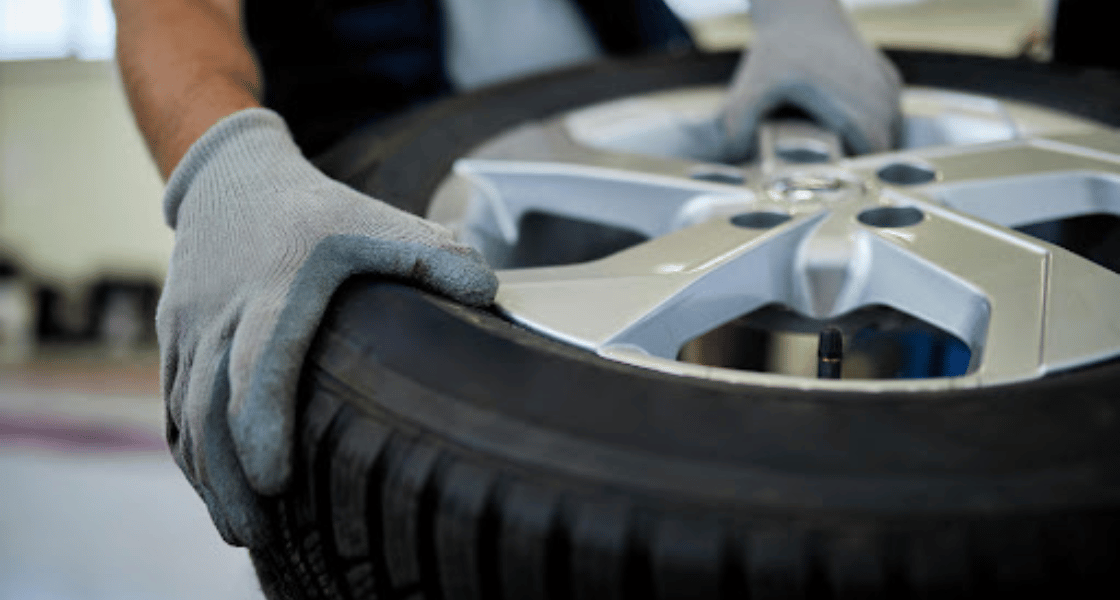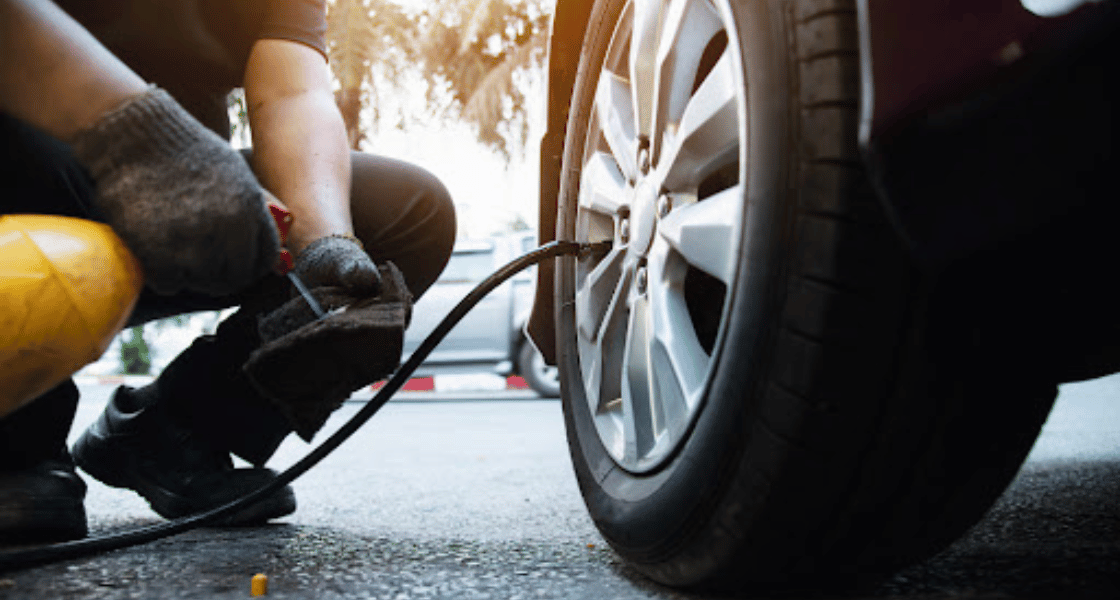Many of us probably don’t think too much about what is going on with our tires — until there’s a problem. So long as our pressure and treads are good, we likely don’t lose much sleep over what is keeping our tires inflated.
However, what goes into our tires can actually make a big difference in how the car has to be maintained, how long it will live, and how well our car drives. While we most often associate tires with air, nitrogen-filled tires offer many benefits and improved performance when compared to regular air!
Table of Contents
ToggleWhat is the Difference Between Nitrogen Inflation and Air Inflation?
You have two primary options for what fills your tire: nitrogen and air.
The difference between air-filled tires and those filled with nitrogen is the concentration of nitrogen within the tires.
The regular air that we breathe and is compressed to fill tires is actually a mix of several gases; 78% nitrogen, about 21% oxygen, and the remaining 1% a combination of water vapor, CO2, and noble gas.
On the other hand, nitrogen is more concentrated because the oxygen which normally comprises regular air is removed. While it may sound insignificant, more concentrated nitrogen has several beneficial properties for cars.
Furthermore, nitrogen is an inert gas, meaning that it’s not flammable and doesn’t support moisture. This makes nitrogen-filled tires have several advantages to regular tires!
What are the Benefits of Nitrogen Inflation Over Air Inflation?
Nitrogen in tires improves fuel economy, maintains proper tire pressure for longer, and is less likely to cause a blowout, reducing the amount of maintenance your tires require!

Improved Tire Life and Performance
Nitrogen tires are less likely to corrode compared to tires filled with regular air. It’s possible for water to enter air tires while being filled, leading to rust and corrosion.
However, nitrogen tires are filled with dry nitrogen, meaning that water is purged from your tires during the filling process. This approach minimizes the risk of water corrosion, helping your tires maintain better performance for longer.
Additionally, nitrogen improves tire performance by maintaining correct air pressure over an extended period of time. Unlike regular air, which contains various gases, nitrogen has larger molecules that are less prone to permeating through the tire’s rubber. This reduced permeability minimizes pressure loss, ensuring the tire preserves the recommended pressure longer.
Proper tire pressure is crucial for ideal performance of your vehicle’s driving ability. It also promotes even wear across the tire’s tread, maximizing traction and extending tire life. By maintaining inflated levels, nitrogen inflation enhances overall tire performance and safety, providing drivers with better control, improved fuel efficiency, and a smoother ride!
Better Fuel Economy
Since nitrogen-filled tires are better at maintaining tire pressure, they improve fuel economy. The optimized handling provided by maintaining proper tire pressure helps the vehicle run more efficiently, improving the vehicle’s fuel economy and saving up to 5% in fuel costs.
More Consistent Pressure
Nitrogen-filled tires allow for less water vapor than regular ones. This lower water content reduces the potential for condensation within the tire when temperatures fluctuate. As a result, nitrogen tires experience minimal changes in pressure due to temperature variations. This stability preserves consistent tire performance and ensures that the tire remains inflated.
In contrast, tires filled with regular air are more sensitive to temperature changes, leading to fluctuations in tire pressure. By reducing the impact of temperature changes on tire pressure, nitrogen provides more reliable and predictable handling, improved safety, and better overall performance in various weather conditions!
Reduced Risk of Tire Failure and Pressure Loss
Tires without adequate pressure are more likely to cause a blowout and more difficult to properly drive.
Nitrogen easily maintains proper tire pressure, losing pressure 40% slower than regular air tires. Thus, it’s less likely that your tires will be underinflated and lead to a blow out, making nitrogen tires safer on the road.

Does Nitrogen Inflation Cost More Than Air Inflation?
Nitrogen inflation is an investment. It may cost more upfront than air inflation, but the long-term benefits of nitrogen inflation will offset your initial investment!
Short-Term vs. Long-Term Costs
In the short-term, air inflation may be cheaper than nitrogen. However, nitrogen makes it easier to maintain your tire’s health and performance over longer periods of time. Therefore it offers the best option for a long-term, successful investment!
Cost Comparison of Nitrogen Inflation and Air Inflation
Once you crunch the numbers, there is not a significant cost difference between air and nitrogen — that is, if you add up all the maintaining and replacing air vs. nitrogen tires over the course of their lives. In addition to the advantages of nitrogen in terms of your vehicle’s performance, tire longevity, reduced risk of failure, and better fuel economy, nitrogen tires are also more convenient. Unlike air tires, which should be refilled every 7-10 days, nitrogen-filled tires only need attention once a month. While there may not be a large monetary difference, nitrogen tires help save time and improve your car’s performance!

Air vs. Nitrogen-Filled Tires: Make the Right Choice for Your Car’s Tires!
At Fuel and Tire Saver, we offer a nitrogen tire inflation service as a cost-effective solution for optimizing tire performance!
Our team is committed to the science behind nitrogen tire inflation and can work with you to develop a customized tire maintenance plan that meets the unique needs of your fleet.
Contact Fuel and Tire Saver and check out our resources page to learn more about our nitrogen-filled tires and how we can help keep your fleet rolling smoothly!


